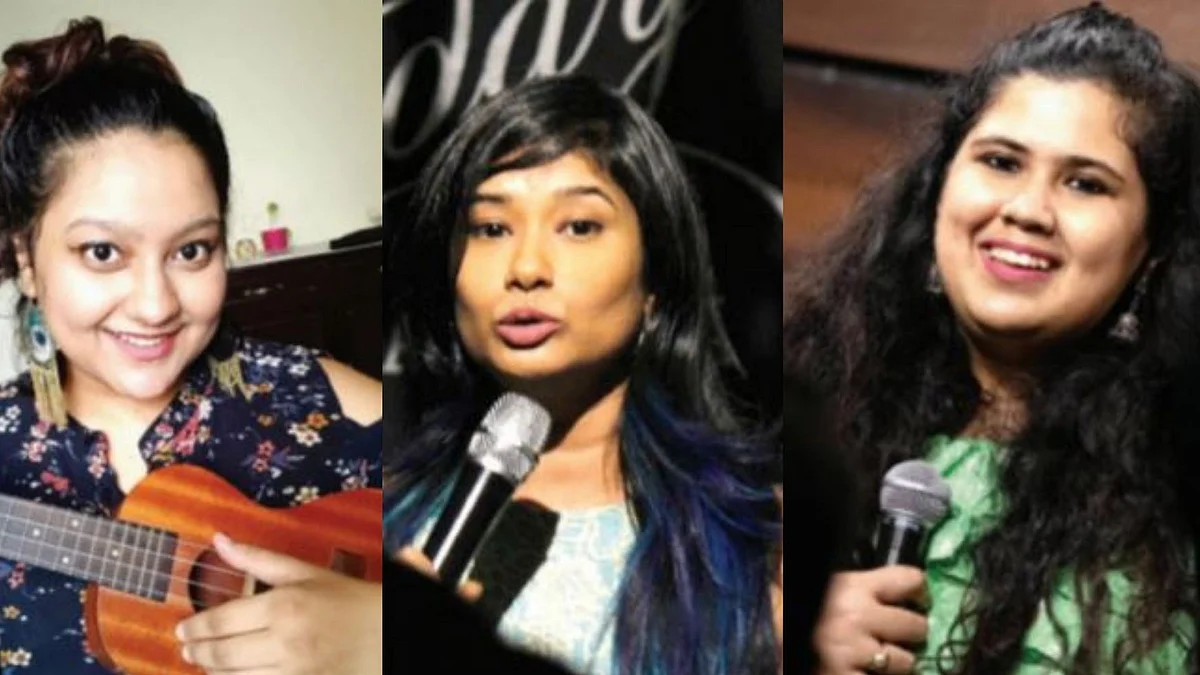Price of laughter: Challenges of being a woman comedian
Funny or not, if they are too plain or too fat, too daring or too bold or too free spirited, women into comedy face threats and abuses every day. Are women-only comedy shows the only recourse?

It was in July 2020 when Agrima Joshua cracked a joke about the misplaced priorities of the government. It was interpreted as an insult to Chhatrapati Shivaji Maharaj and she was flooded with online threats of rape and death. Her family too was not spared. A year later, has anything changed?
“Some men find women doing comedy and speaking their minds upsetting,” reflects Pratyasha Rana. Three years into the industry, she has been subjected to body-shaming frequently enough; but the most disheartening is to hear that women are not really funny and shouldn’t be in this industry
“Hathi, bhains, moti, tere ko ladka mila khush reh, tera bhi ex hai, gym jaa na phir (elephant, buffalo, fat, be happy that you at least have a guy, you also have an ex, go to the gym)- such comments are commonplace.”
Merenla Imsong concurs before exclaiming, ‘women are still reduced to just their bodies and appearances’. “The way men get trolled is completely different from how women get trolled,” she says. When a male comedian’s joke falls flat, they target the joke but when a female comedian’s joke doesn’t agree with the audience, they target her
“I’ve never seen anyone go up to a man and say, ‘Hey, you are hairy like a bear’, or ‘you have a terribly unsexy beard’ or ‘you’re bald and a joke’,” quips Imsong before adding, “But I’ve often been trolled for being flatchested.” Rana has an explanation ready. “Calling you names because of your looks is something that happens to children in school and to grown-ups on the internet.”
Is comedy a safe space for women then? Jeeya Sethi isn’t sure. “It’s like any other space for women, we feel safest when other women are around.”
Sethi doesn’t think it’s particularly unsafe but concedes that it’s not welcoming either. Rana adds, “When women are not safe in buses and trains in broad daylight, how much more intimidating can social media trolling really be? It’s discouraging but it’s nothing new for women.”
The discrimination in comedy is such that it allows men to joke on certain topics, while restraining women from doing so even subtly. Her audience has often found self-deprecating humour awkward, but it’s very often appreciated when it comes from male comedians.
For women to use “foul” language on stage is again strictly prohibited, says Vipasha Malhotra. She feels that society’s expectations from her because of her gender have often led her to censor herself. Malhotra has also been at the receiving end of threats and verbal abuse. It becomes even more difficult when industry seniors aren’t supportive, she says. She recalls an incident when a senior stand-up comic told her she should quit because the show didn’t go as planned.
Even if one doesn’t care about the trolls, it’s upsetting to read or hear negative comments, says Imsong. “I’m here just to make people laugh, I’m not trying to start a revolution.” But she does realise that people on the internet are extremely frustrated, and so, she imagines them to be people just typing in anger, cursing everyone on the web. She recalls Virginia Woolf ’s book A Room of One’s Own wherein Woolf had wondered as to what would have happened if Shakespeare had a sister- how she would not have been as successful even if she were more talented and hardworking, because she would have a thousand more challenges to overcome every day.
Imsong acknowledges that men in comedy have set a bar that defines success, but says it isn’t fair to women because how women perceive things is very different from how men do. Rana points out that being from the North East, her voice and experiences she shares are also different and distinctive.
Are women-only comedy shows the only recourse then? Sethi and Imsong have both done shows exclusively for women and they have been some of their best shows. Malhotra wonders aloud if an organisation of women comedians or a law to protect women comedians would be a solution. Until then, a room of their own would have to work.
Follow us on: Facebook, Twitter, Google News, Instagram
Join our official telegram channel (@nationalherald) and stay updated with the latest headlines
